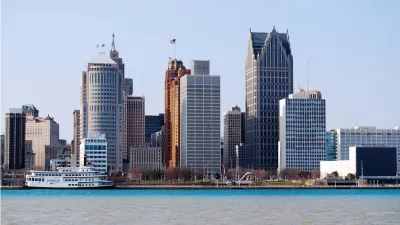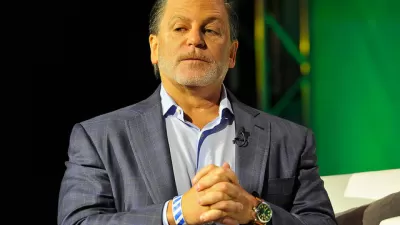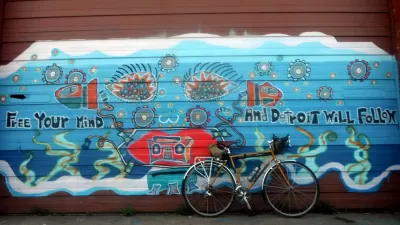The Quicken Loans founder and real estate mogul now controls 78 downtown properties. His investment choices can set the tone for life in what used to be an abandoned city center.

Much of what we hear about resurrection in Detroit comes from Dan Gilbert, the billionaire aspiring to own downtown. Over the past five years, Gilbert has invested over $1.5 billion in properties lying fallow since Detroit became poster-city for Rust Belt blight.
The push started when Gilbert moved Quicken Loans' headquarters downtown from the suburbs, bringing with him a young and numerous workforce. "Today, Gilbert and his partners own or control through leases 78 properties downtown, including much of the retail space along Woodward Avenue in the core of downtown."
Offices, residents, and retail have moved into Gilbert's properties, enlivening the street scene under the watchful eye of an extensive private security force. "Gilbert began to station colorful furniture on the sidewalks and plazas outside his buildings. He attracted food trucks and musicians. He even worked with Campus Martius managers to install a sandy beach [at the park]."
Gilbert's plan for downtown has also attracted criticism. "There are also some who feel the renaissance has been a lopsided one, favoring corporations and professionals living and working downtown. Critics stress that the city's neighborhoods and residents, so far, are mostly being left out of the new activity and investment."
FULL STORY: Five years in, and Dan Gilbert's just beginning

Maui's Vacation Rental Debate Turns Ugly
Verbal attacks, misinformation campaigns and fistfights plague a high-stakes debate to convert thousands of vacation rentals into long-term housing.

Planetizen Federal Action Tracker
A weekly monitor of how Trump’s orders and actions are impacting planners and planning in America.

San Francisco Suspends Traffic Calming Amidst Record Deaths
Citing “a challenging fiscal landscape,” the city will cease the program on the heels of 42 traffic deaths, including 24 pedestrians.

Defunct Pittsburgh Power Plant to Become Residential Tower
A decommissioned steam heat plant will be redeveloped into almost 100 affordable housing units.

Trump Prompts Restructuring of Transportation Research Board in “Unprecedented Overreach”
The TRB has eliminated more than half of its committees including those focused on climate, equity, and cities.

Amtrak Rolls Out New Orleans to Alabama “Mardi Gras” Train
The new service will operate morning and evening departures between Mobile and New Orleans.
Urban Design for Planners 1: Software Tools
This six-course series explores essential urban design concepts using open source software and equips planners with the tools they need to participate fully in the urban design process.
Planning for Universal Design
Learn the tools for implementing Universal Design in planning regulations.
Heyer Gruel & Associates PA
JM Goldson LLC
Custer County Colorado
City of Camden Redevelopment Agency
City of Astoria
Transportation Research & Education Center (TREC) at Portland State University
Jefferson Parish Government
Camden Redevelopment Agency
City of Claremont




























